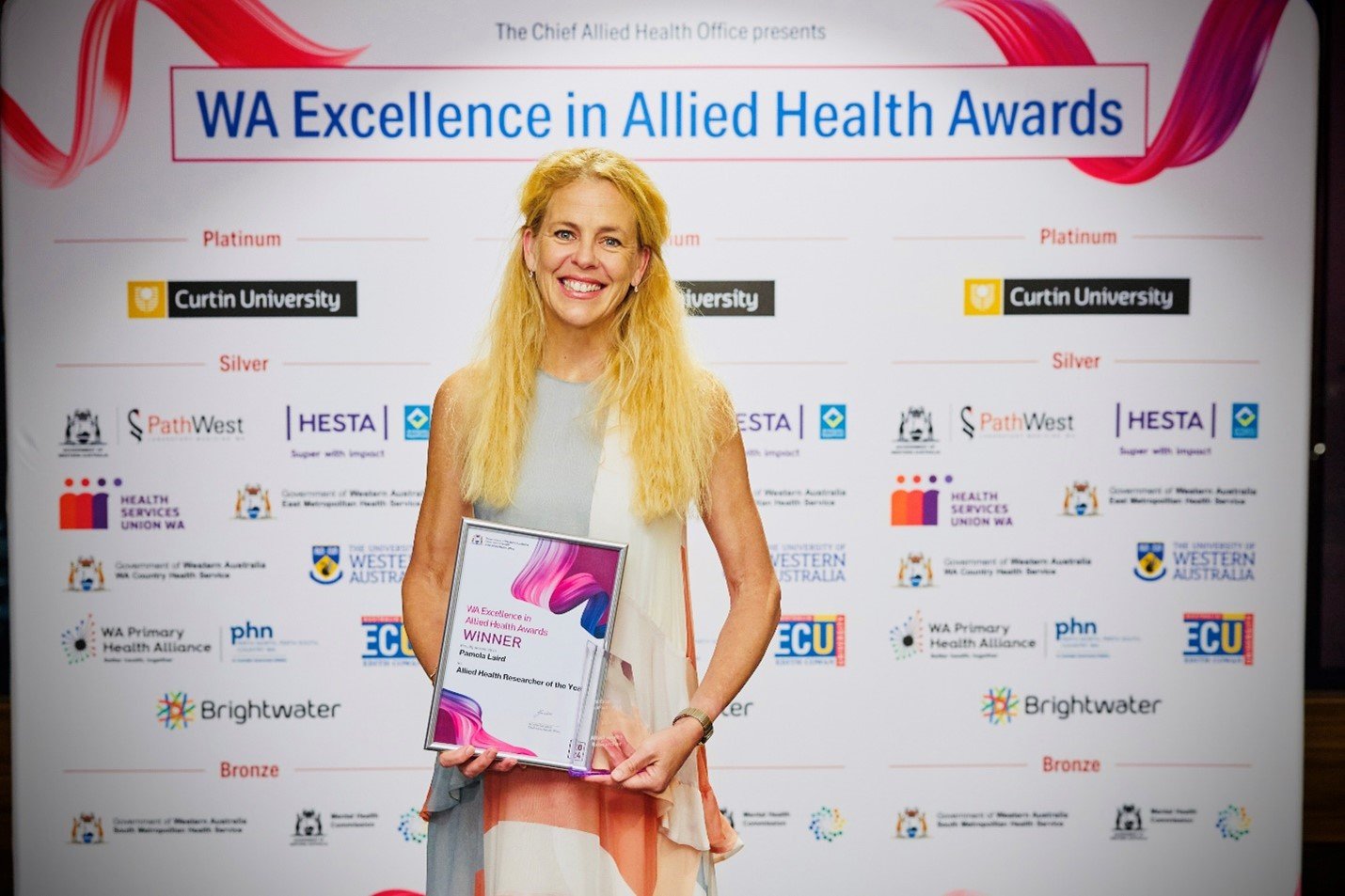Search
Showing results for "Au"

News & Events
New research reveals TikTok's benefits to LGBTQIA+ communityNew research from Embrace @ The Kids Research Institute Australia's childhood trauma team Rigel Paciente and Alix Woolard reveals TikTok's benefits to LGBTQIA+ community

News & Events
Allied Health award for respiratory researcher Dr Pamela LairdCongratulations to respiratory health clinician-researcher Dr Pamela Laird, who has won Allied Health Researcher of the Year at the WA Excellence in Allied Health Awards.
Research
Public health impact of current and proposed age-expanded perennial malaria chemoprevention: a modelling studyIn 2022, the World Health Organization extended their guidelines for perennial malaria chemoprevention (PMC) from infants to children up to 24 months old. However, evidence for PMC's public health impact is primarily limited to children under 15 months. Further research is needed to assess the public health impact and cost-effectiveness of PMC, and the added benefit of further age-expansion. We integrated an individual-based model of malaria with pharmacological models of drug action to address these questions for PMC and a proposed age-expanded schedule (referred as PMC+, for children 03-36 months).
Research
The causal impact of mental health on tobacco and alcohol consumption: An instrumental variables approachThe reciprocal relationship between psychiatric and substance use disorders is well-known, yet it remains largely unknown whether mental health morbidity causally leads to addictive behaviours. This paper utilises a fixed effects instrumental variables model, which is identified by time-varying sources of plausibly exogenous variations in mental health, and a nationally representative panel dataset from Australia to present robust evidence on the causal impact of mental distress on cigarette smoking and alcohol drinking behaviours.
Research
Gender differences in time allocation contribute to differences in developmental outcomes in children and adolescentsUsing over 50 thousand time-use diaries from two cohorts of children, we document significant gender differences in time allocation in the first 16 years in life. Relative to males, females spend more time on personal care, chores and educational activities and less time on physical and media related activities. These gender gaps in time allocation appear at very young ages and widen overtime.
Research
Off-target effects of bacillus Calmette-Guerin vaccination on immune responses to SARS-CoV-2: implications for protection against severe COVID-19Because of its beneficial off-target effects against non-mycobacterial infectious diseases, bacillus Calmette-Guérin vaccination might be an accessible early intervention to boost protection against novel pathogens. Multiple epidemiological studies and randomised controlled trials are investigating the protective effect of BCG against coronavirus disease 2019 (COVID-19).
Research
Clinical Management of Staphylococcus aureus Bacteremia in Neonates, Children, and AdolescentsStaphylococcus aureus is a common cause of community and health care-associated bacteremia, with authors of recent studies estimating the incidence of S aureus bacteremia (SAB) in high-income countries between 8 and 26 per 100 000 children per year. Despite this, <300 children worldwide have ever been randomly assigned into clinical trials to assess the efficacy of treatment of SAB.
Research
Reference exome data for Australian Aboriginal populations to support health-based researchOur data set provides a useful reference point for genomic studies on Aboriginal Australians
Research
Arylsulphatase A Pseudodeficiency (ARSA-PD), hypertension and chronic renal disease in Aboriginal AustraliansTraits associated with CVD, CRD and T2D in Aboriginal Australians provide novel insight into function of Arylsulphatase A Pseudodeficiency variants
Research
Conceptualizing a quality of life framework for girls with Rett syndrome using qualitative methodsExisting quality of life scales for children in the general population or with other disabilities did not capture the QOL of children with Rett syndrome
